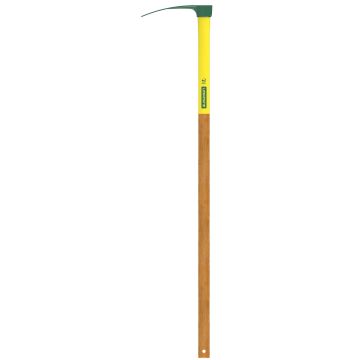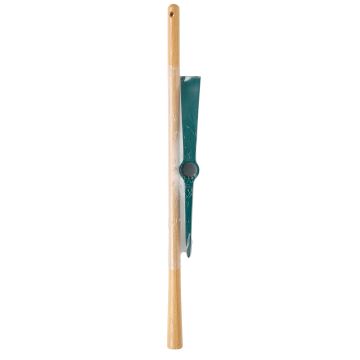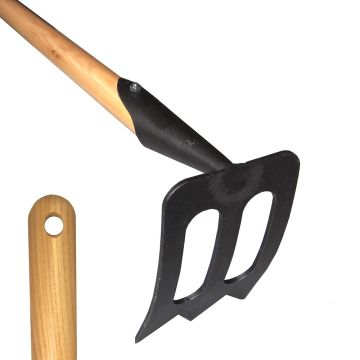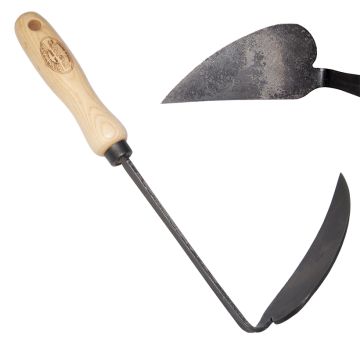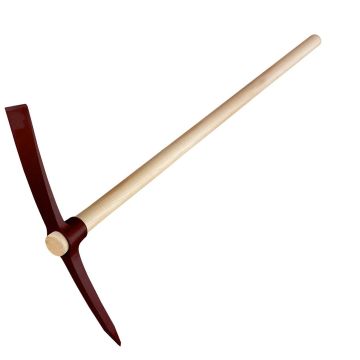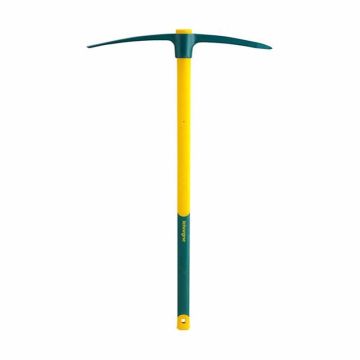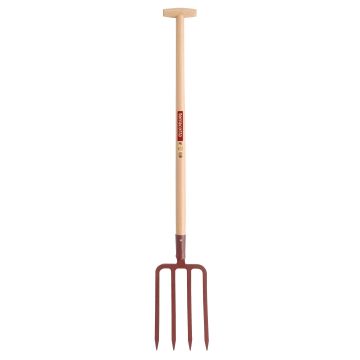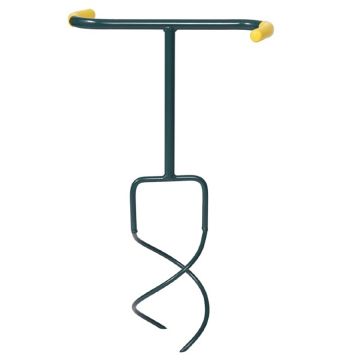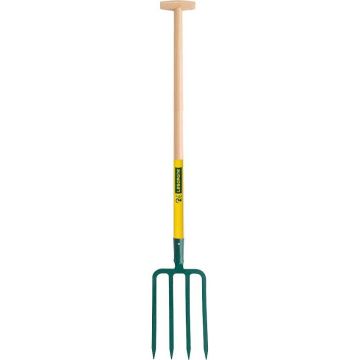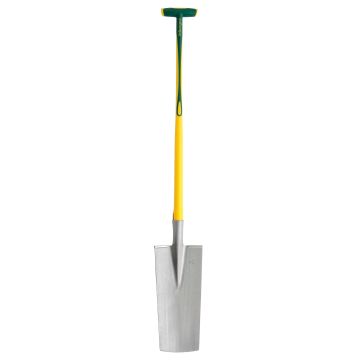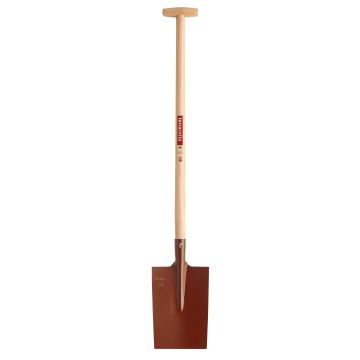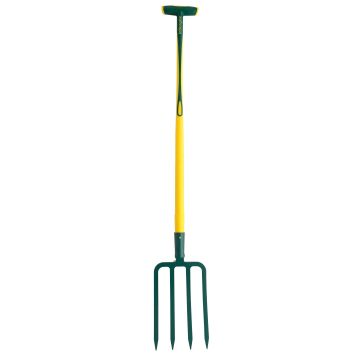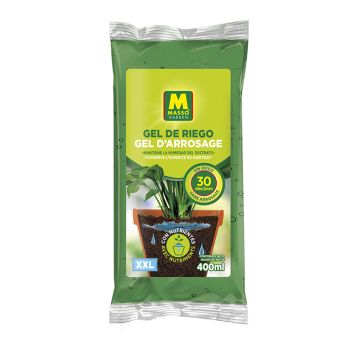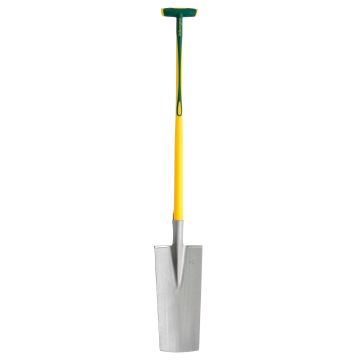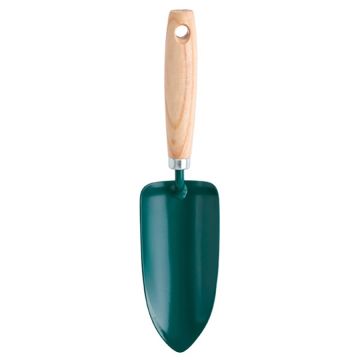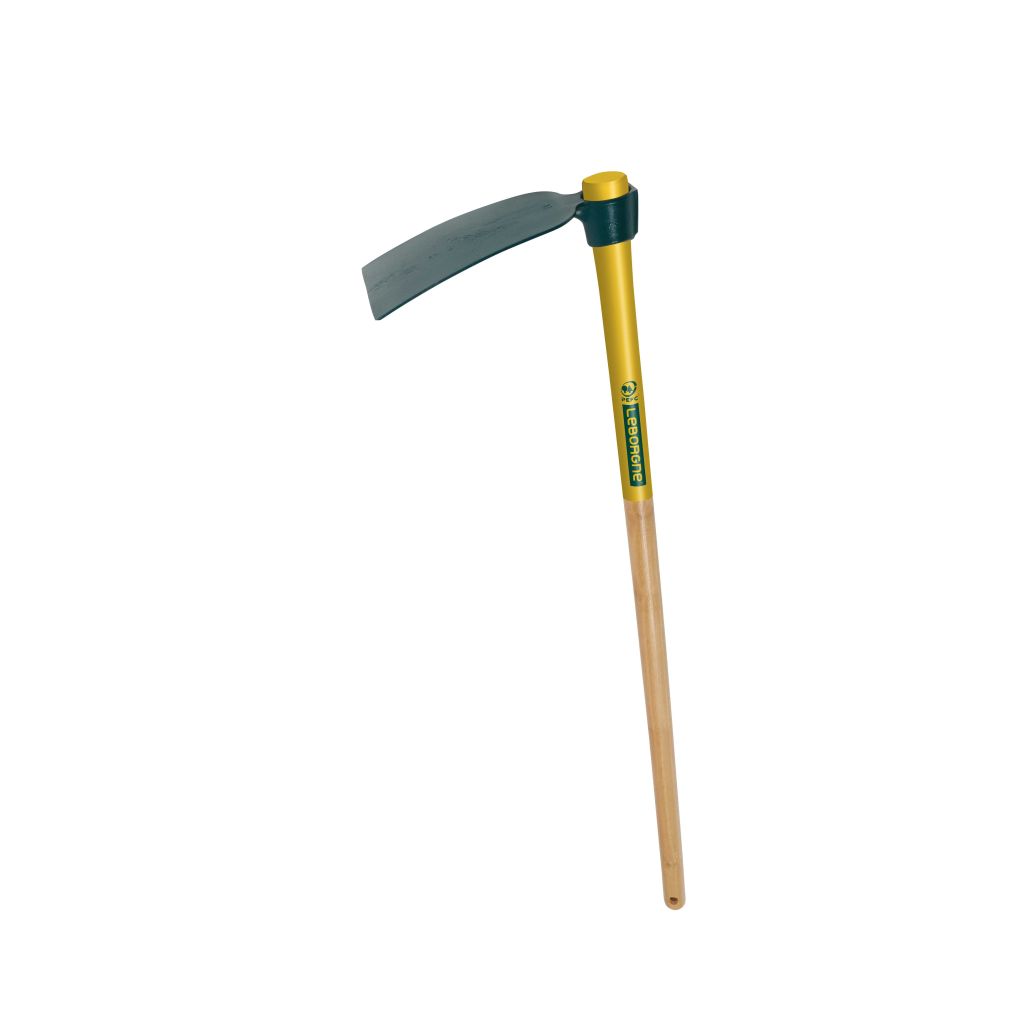

Leborgne Duopro forged hoe with a round socket, 12cm (5in)
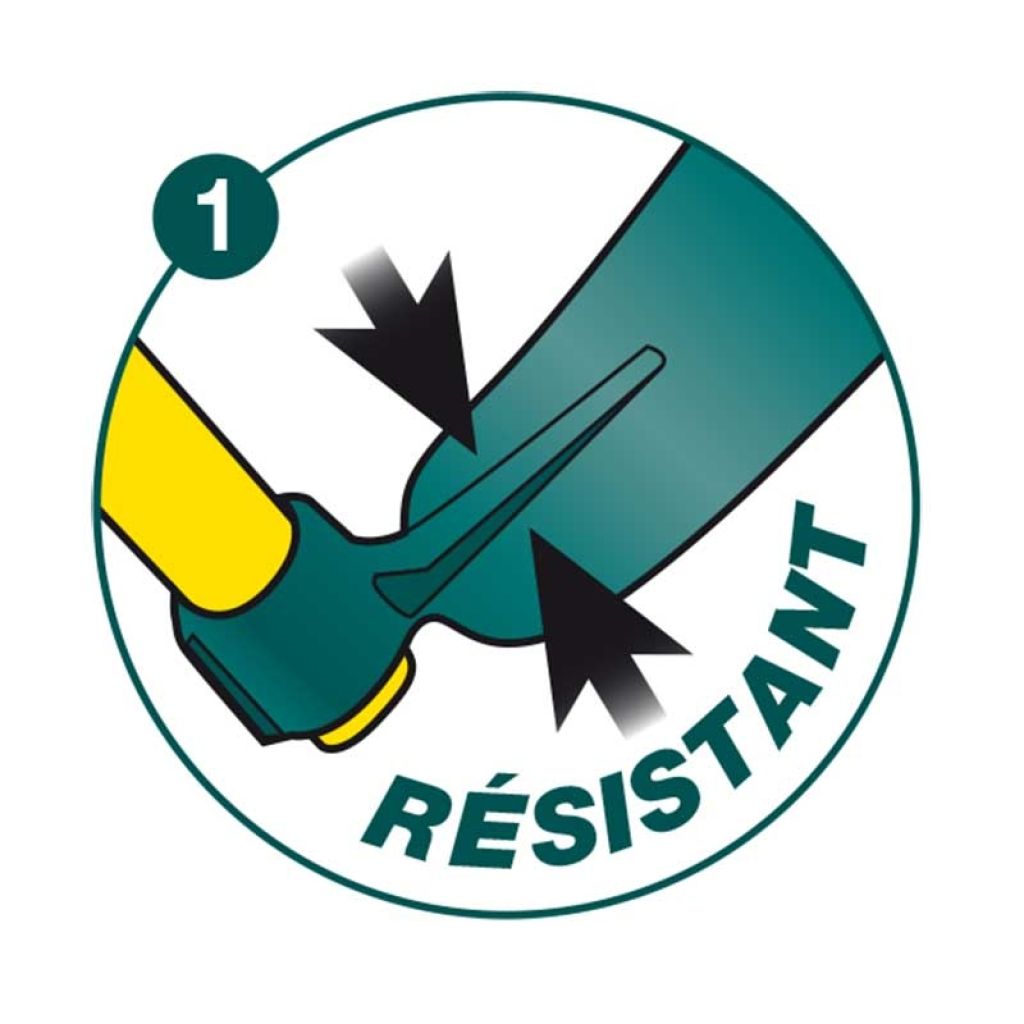

Leborgne Duopro forged hoe with a round socket, 12cm (5in)
Leborgne Duopro forged hoe with a round socket, 12cm (5in)
This item cannot be shipped to the selected country
Oversize package delivery charge from €6.90
More information
Schedule delivery date,
and select date in basket
We guarantee the quality of our plants for a full growing cycle, and will replace at our expense any plant that fails to recover under normal climatic and planting conditions.
Oversize package: home delivery by special carrier from €6.90 per order..
Express home delivery from €8.90.

The applied DuoPro forged round socket hoe 12cm (5in) Leborgne is a high-quality tool at a good price. Its wide head made of forged steel is perfect for breaking up, digging, and gathering soil, even in compact and heavy soils. It also has a striking surface that allows the tool to be used for driving stakes. Fully hardened to resist wear and equipped with a conical round socket that ensures a perfect fit and facilitates handle replacement, the tool is highly durable and will accompany the gardener for many years. Use it to mound your potatoes, dig furrows or trenches, and aerate the soil surface without turning it over. 15-year manufacturer's warranty.
Dimensions: Spade blade: 18cm (7in) x 12cm (5in) - Weight: 0.7kg Handle length: 110cm (43in)
The hoe is a basic tool, designed both for weeding without the use of chemicals and for working the surface of the soil. Its heavy and wide head is specially adapted for breaking up the surface and deeply opening even compact and heavy soils. Closer to a pickaxe than a hoe, it allows for crumbling and loosening the top layer of soil after digging, uprooting unwanted plants, hilling vegetables, which means gathering soil into a mound around their base, or digging shallow planting holes and furrows. Like the hoe, the hoe is used to loosen and break up the top layer of soil, leaving the soil around the cultivated plants in the vegetable garden or ornamental garden well-aerated. It also helps prevent the formation of a compacted layer that occurs under the action of watering or rain in clay or loamy soils. This hard and compact layer, which is very difficult to rehydrate and suffocating for plants, also promotes the upward movement of water to the surface and its evaporation. Working the surface of the soil after watering reduces water evaporation. This model is equipped with a forged steel head, fully hardened to make it exceptionally resistant to wear. Its conical round socket ensures a stable connection between the head and the handle and allows for easy handle replacement. The handle wood comes from sustainably managed forests, certified 100% PEFC. Its perforated end allows for hanging storage of the hoe. This tool, assembled in France, is covered by a 15-year warranty from the manufacturer.
Leborgne is a French company that was born out of metallurgical activity in Savoie in 1829. Today, it is a specialist in the manufacture of high-quality hand tools, used in construction, masonry, landscaping, and gardening, among other fields. Their products combine robustness and ergonomics while meeting the most specific needs!
This tool is under warranty. The warranty does not cover handles, only metallic parts excluding consumables (screws, springs, etc.), and is valid under normal use conditions.
Technical features
Tips
Other Hoes and pick axes
This item has not been reviewed yet - be the first to leave a review about it.
Planting tools
Haven't found what you were looking for?
Hardiness is the lowest winter temperature a plant can endure without suffering serious damage or even dying. However, hardiness is affected by location (a sheltered area, such as a patio), protection (winter cover) and soil type (hardiness is improved by well-drained soil).

Photo Sharing Terms & Conditions
In order to encourage gardeners to interact and share their experiences, Promesse de fleurs offers various media enabling content to be uploaded onto its Site - in particular via the ‘Photo sharing’ module.
The User agrees to refrain from:
- Posting any content that is illegal, prejudicial, insulting, racist, inciteful to hatred, revisionist, contrary to public decency, that infringes on privacy or on the privacy rights of third parties, in particular the publicity rights of persons and goods, intellectual property rights, or the right to privacy.
- Submitting content on behalf of a third party;
- Impersonate the identity of a third party and/or publish any personal information about a third party;
In general, the User undertakes to refrain from any unethical behaviour.
All Content (in particular text, comments, files, images, photos, videos, creative works, etc.), which may be subject to property or intellectual property rights, image or other private rights, shall remain the property of the User, subject to the limited rights granted by the terms of the licence granted by Promesse de fleurs as stated below. Users are at liberty to publish or not to publish such Content on the Site, notably via the ‘Photo Sharing’ facility, and accept that this Content shall be made public and freely accessible, notably on the Internet.
Users further acknowledge, undertake to have ,and guarantee that they hold all necessary rights and permissions to publish such material on the Site, in particular with regard to the legislation in force pertaining to any privacy, property, intellectual property, image, or contractual rights, or rights of any other nature. By publishing such Content on the Site, Users acknowledge accepting full liability as publishers of the Content within the meaning of the law, and grant Promesse de fleurs, free of charge, an inclusive, worldwide licence for the said Content for the entire duration of its publication, including all reproduction, representation, up/downloading, displaying, performing, transmission, and storage rights.
Users also grant permission for their name to be linked to the Content and accept that this link may not always be made available.
By engaging in posting material, Users consent to their Content becoming automatically accessible on the Internet, in particular on other sites and/or blogs and/or web pages of the Promesse de fleurs site, including in particular social pages and the Promesse de fleurs catalogue.
Users may secure the removal of entrusted content free of charge by issuing a simple request via our contact form.
The flowering period indicated on our website applies to countries and regions located in USDA zone 8 (France, the United Kingdom, Ireland, the Netherlands, etc.)
It will vary according to where you live:
- In zones 9 to 10 (Italy, Spain, Greece, etc.), flowering will occur about 2 to 4 weeks earlier.
- In zones 6 to 7 (Germany, Poland, Slovenia, and lower mountainous regions), flowering will be delayed by 2 to 3 weeks.
- In zone 5 (Central Europe, Scandinavia), blooming will be delayed by 3 to 5 weeks.
In temperate climates, pruning of spring-flowering shrubs (forsythia, spireas, etc.) should be done just after flowering.
Pruning of summer-flowering shrubs (Indian Lilac, Perovskia, etc.) can be done in winter or spring.
In cold regions as well as with frost-sensitive plants, avoid pruning too early when severe frosts may still occur.
The planting period indicated on our website applies to countries and regions located in USDA zone 8 (France, United Kingdom, Ireland, Netherlands).
It will vary according to where you live:
- In Mediterranean zones (Marseille, Madrid, Milan, etc.), autumn and winter are the best planting periods.
- In continental zones (Strasbourg, Munich, Vienna, etc.), delay planting by 2 to 3 weeks in spring and bring it forward by 2 to 4 weeks in autumn.
- In mountainous regions (the Alps, Pyrenees, Carpathians, etc.), it is best to plant in late spring (May-June) or late summer (August-September).
The harvesting period indicated on our website applies to countries and regions in USDA zone 8 (France, England, Ireland, the Netherlands).
In colder areas (Scandinavia, Poland, Austria...) fruit and vegetable harvests are likely to be delayed by 3-4 weeks.
In warmer areas (Italy, Spain, Greece, etc.), harvesting will probably take place earlier, depending on weather conditions.
The sowing periods indicated on our website apply to countries and regions within USDA Zone 8 (France, UK, Ireland, Netherlands).
In colder areas (Scandinavia, Poland, Austria...), delay any outdoor sowing by 3-4 weeks, or sow under glass.
In warmer climes (Italy, Spain, Greece, etc.), bring outdoor sowing forward by a few weeks.

































